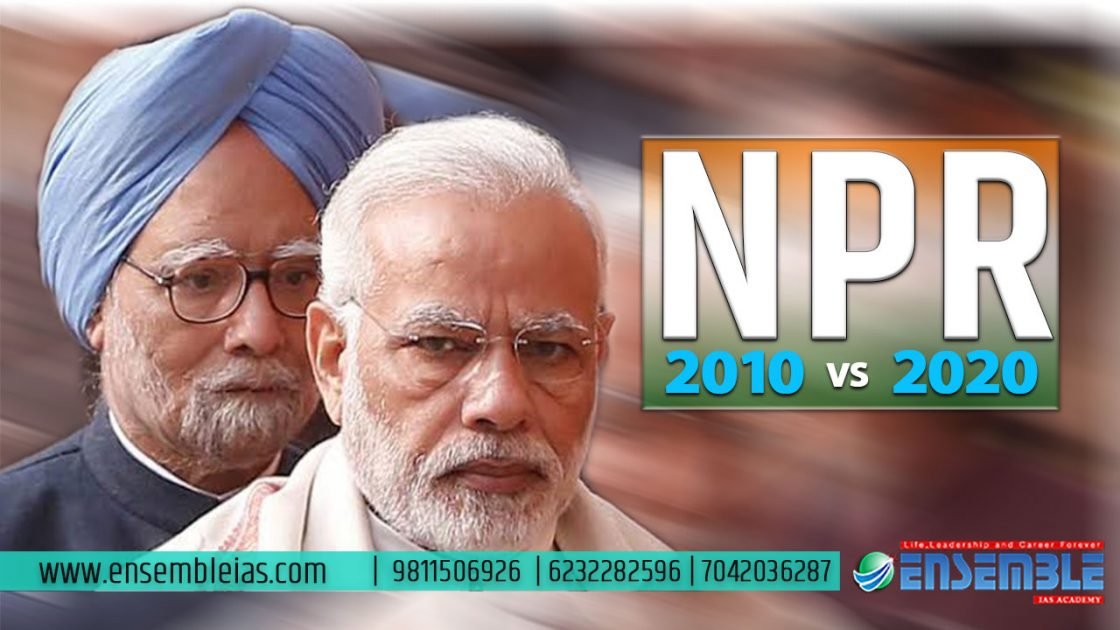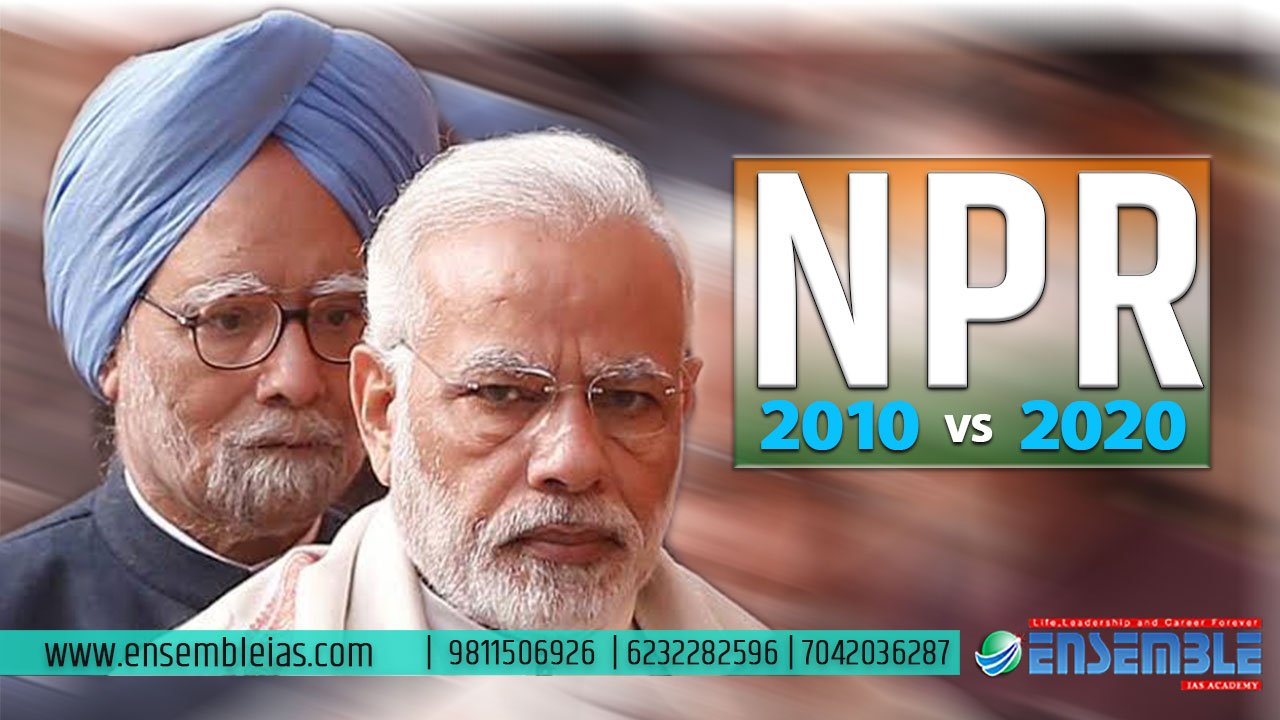 NPR 2010 vs 2020: The ruling BJP and the Congress on Thursday engaged in a war of words over their respective versions of the National Population Register (NPR). Under re for NPR, which many still see as the rst stage of an all-india National Register of Citizens (NRC) despite assurances from home minister Amit Shah that the two are not linked, the BJP has pointed to announcements by former Union minister P Chidambaram of the Congress-led UPA regime (2004-14). Here is an explainer on similarities and differences between the two NPRS.
NPR 2010 vs 2020: The ruling BJP and the Congress on Thursday engaged in a war of words over their respective versions of the National Population Register (NPR). Under re for NPR, which many still see as the rst stage of an all-india National Register of Citizens (NRC) despite assurances from home minister Amit Shah that the two are not linked, the BJP has pointed to announcements by former Union minister P Chidambaram of the Congress-led UPA regime (2004-14). Here is an explainer on similarities and differences between the two NPRS.
View our Blog: https://ensembleias.com/blog/
WHAT IS NPR?
The NPR is a register of “usual residents” of the country, including non-residents, prepared at the local (village level), sub District (tehsil/taluka level), district, state and national level under provisions of the Citizenship Act 1955 and the Citizenship (Registration of Citizens and issue of National Identity Cards) Rules, 2003. The aim of NPR is to better target the benefits and services under the government schemes or programmes, improve planning, and prevent identity fraud.
WHAT IS 2020 NPR?
The 2020 NPR to start from April 1, 2020, will be update of the 2010 NPR, which already has data of 1.17 billion people with biometric linkage of 250 million people. Some additional information will be sought from all residents, including the name and place of birth of the father, mother and spouse of every resident. NPR 2020 will have information on whether a resident was born in India or not. Lying in the declaration has been listed as a crime.
HOW THE NPRS ARE SIMILAR?
Both the NPRS are primarily aimed at creating a population register, including non-citizens. The enumeration is being done with the Census, when ocials visit every household in the country, for a house-listing exercise. Both NPRS are aimed at creating a demographic and biometric database of all residents, with basic information such as name, address, place of birth, nationality, and marital status. At the enumeration stage, both are self-declaring mechanisms in which no documents are required. NPR is not applicable in Assam, as the Supreme Court had already mandated NRC there.
WHAT WAS 2010 NPR?
The 2010 exercise was the rst attempt to build a national database of all residents of India, including foreigners. In this, the data of residents was collected on paper and then digitised with 10 fingerprints and iris (eye scan) obtained from the Unique Identification Authority of India (UIDAI), collected for generating Aadhaar numbers. Then, camps were held to show the list of usual residents in a village or a locality in urban areas, where people could make corrections in name, date of birth, or place of birth. After the camps, the local registrars were supposed to submit objections to the names of others on the local population register. These objections were to be disposed of by the revenue ocials from village to the district level, who were also authorised to make “appropriate” remarks in the register. This ling of objections happened only in a few places in India. After the exercise, residency identity cards carrying Aadhaar numbers were also to be issued.
NPR 2010 vs 2020
WHAT DID NPR 2010 SAY ABOUT NRC?
In a reply to Lok Sabha in May 2010, the UPA government had said that “once NPR is prepared, the National Register of Indian Citizens (NRIC) could be derived from the NPR as a subset after ascertaining the citizenship of each individual as and when required and wherever required.” The NPR 2010 camps were considered as a verification exercise before starting the NRC process.
Visit our store at http://online.ensemble.net.in
WHAT ARE THE DIFFERENCES?
The 2010 exercise mentioned that NPR would have biometrics collected by UIDAI; the government has made no such claim for 2020 NPR. Key information about the births of both the people being enumerated and their parents is being sought in 2020 NPR, necessary for determining one’s citizenship under Citizenship Act, 1955. The 1955 law says all those born before 1987, those born between 1987 and 2004 where at least one parent is an Indian citizen, and those born after 2004, where at least one parent is an Indian citizen and other is not an illegal migrant, would qualify to be Indian citizens. The amended citizenship act, or CAA, also oers faster citizenship to “persecuted minorities” from three Muslim-majority countries who came to India by December 31, 2014. In NPR 2020, information on those not born in India is being sought. A crucial difference between the two is Aadhaar. Union I&B minister Prakash Javadekar has said that no Aadhaar will be needed for NPR 2020. In 2010, Aadhaar or any document was not needed during enumeration. It was only at subsequent NPR camps for verification of demographic data that Aadhaar was sought or enrolment for Aadhaar was done for de-duplication of NPR data. The government has so far being silent on such NPR camps. There is also no mention whether residency identity cards will be issued once NPR 2020 is completed, as was promised in 2010.
WILL NPR 2020 LEAD TO NRC?
Home minister Amit Shah and other central leaders have clearly said that NPR and NRC are not linked. Previously, on at least ve different occasions, the government told Parliament that NRC is the stepping stone for the NPR. In August 2019, the government notified NPR 2020, under the rules for Registration of Citizens and issuance of National Identity Cards, Rules 2003, which prescribes detailed process for creation of NRC. The government has not noticed an all-india NRC so far. However, if there is to be a link later, the additional nationality and country-of-birth data asked for in the 2020 NPR could serve as the basis for an all-india NRC.
NPR 2010 vs 2020
Source: Hindustan Times | Written by Chetan Chauhan
For more details : Ensemble IAS Academy Call Us : +91 98115 06926, +91 7042036287
Email: [email protected] Visit us:- https://ensembleias.com/
#npr #amitshah #national_population_register #nrc #caa #current_affairs #daily_updates #editorial #geographyoptional #upsc2020 #ias #k_siddharthasir #ensembleiasacademy




